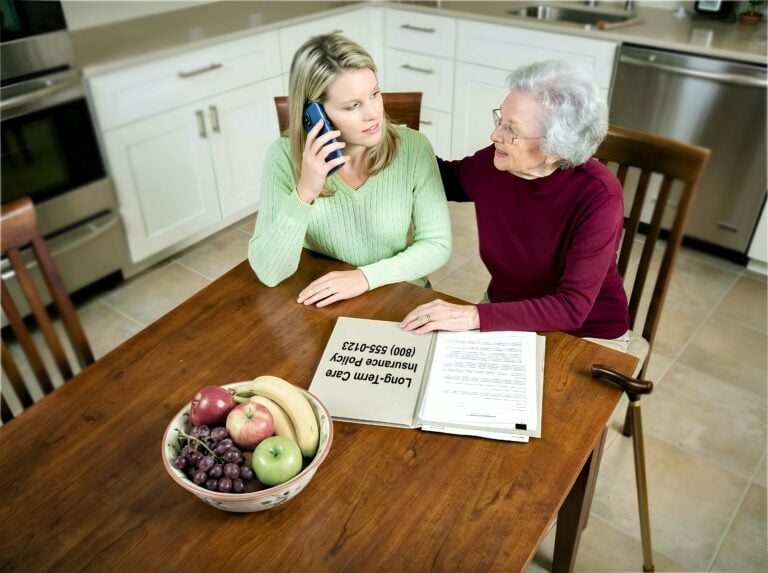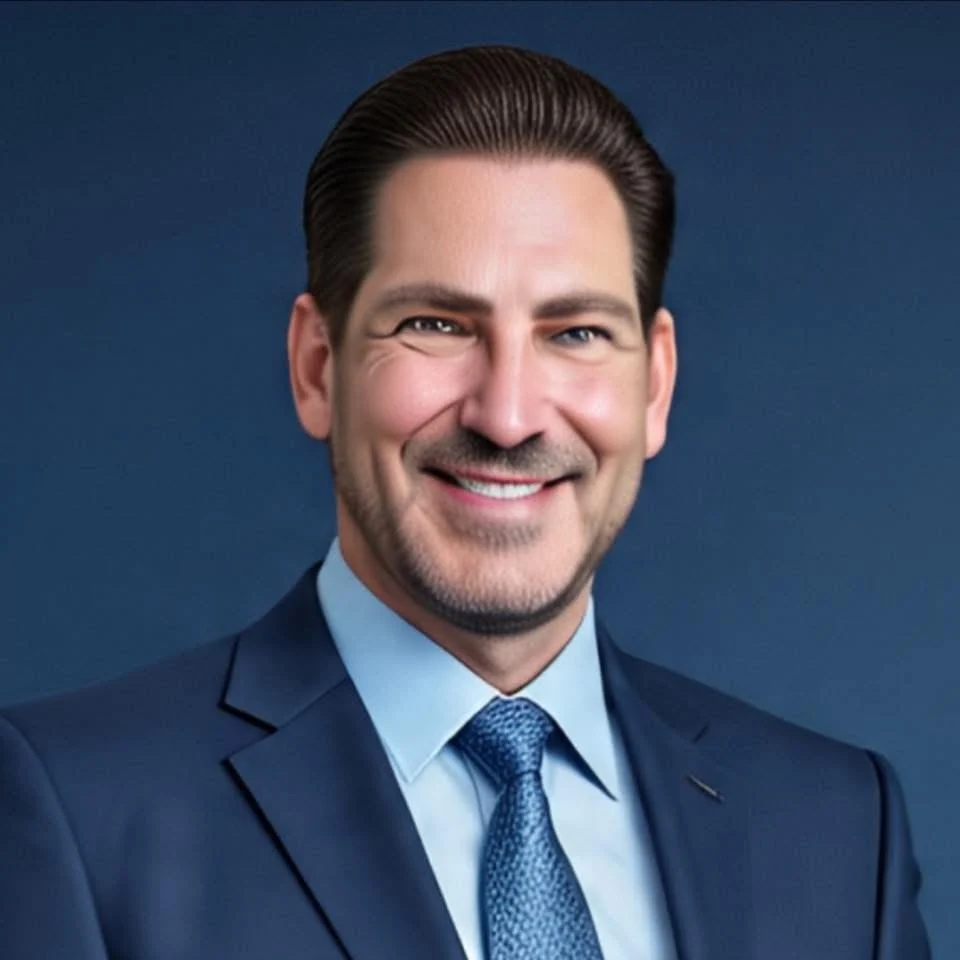Choosing hospice care for a loved one is a big decision—one that comes with a mix of emotions and many questions. When a doctor first mentions hospice care, families might feel grief, fear, or even anger. It’s important to remember that hospice is recommended out of compassion and focuses on comfort rather than cure. Hospice services prioritize quality of life, ensuring a patient’s remaining days are as comfortable as possible.
As a family caregiver, you have the right to choose the hospice provider that best fits your loved one’s needs and values. You are not obligated to use the hospice your doctor or hospital initially recommends. This step-by-step guide will walk you through evaluating and selecting a hospice provider, with key questions every family should ask along the way.
Why Your Choice of Hospice Provider Matters
Not all hospices are the same. While Medicare-certified hospices must meet minimum federal standards, the quality of care can vary significantly from one provider to another. Recent research makes this especially clear.
A 2024 study published in JAMA found that nonprofit hospices consistently delivered the highest-rated care across critical areas, including pain management, family support, and emotional care. Additional RAND research found that across all eight quality measures, a substantially higher proportion of for-profit hospices were in the low-performing category than nonprofit hospices.
The hospice landscape has shifted dramatically over the past two decades. Today, approximately 75% of U.S. hospices are for-profit, compared to just 5% in 1990. This doesn’t mean for-profit hospices are inherently bad—many provide excellent care—but it does mean families should do their homework rather than simply accepting the first recommendation they receive.
The good news: You have tools to compare providers, ask the right questions, and find the hospice that will truly honor your loved one’s final journey.
Step 1: Start with Recommendations and Research
Begin your search by gathering reliable recommendations. Ask your loved one’s doctor or discharge planner for a list of hospice care providers they trust. Healthcare professionals often have experience with local hospices and can share feedback from other families—both positive and negative—to guide you. It’s also helpful to speak with friends, neighbors, or coworkers who have used hospice services for their loved ones to learn about their experiences. Personal referrals can point you toward providers with a good reputation for compassionate end-of-life care.
Next, conduct online research to identify hospice providers in San Diego. Use resources like Medicare’s Care Compare website to locate Medicare-certified hospices in your area and compare quality ratings. This official tool lets you search by location to view family satisfaction scores and the services offered. The site now includes star ratings based on the CAHPS Hospice Survey, which measures how families rate their hospice experience across eight key areas, including communication, timely care, symptom management, and emotional support.
While reading online reviews or testimonials, remember that every family’s situation is unique. Look for overall patterns in feedback rather than focusing on any single negative (or positive) review. Additionally, check the California State Hospice Association or local senior care directories, which often list accredited hospice providers. Starting with a broad list of options will set the stage for the next steps as you narrow down the best hospice for your loved one.
Questions to ask in Step 1:
- Which hospice providers does our doctor recommend, and why?
- Do any friends or family in San Diego have firsthand experiences with local hospices?
- What do online resources and reviews say about hospices near me?
Step 2: Evaluate Credentials, Certification, and Experience
Once you have a list of potential hospices, take a closer look at each provider’s credentials and experience. How long has the hospice been serving the San Diego community? A long track record can be reassuring. An established provider that has served the community for many years demonstrates stability and likely has ample experience in providing end-of-life care. You can ask directly: “How long have you been in operation and serving our area?”
Also consider the hospice’s reputation: Do local hospitals and doctors frequently recommend them? Do they willingly provide references or share testimonials from past families? A provider’s openness to sharing this information is a positive sign; hesitation or evasion may be a red flag.
Verify Certification and Accreditation
Just as important is verifying that the hospice is properly licensed and Medicare-certified. If your loved one is enrolled in Medicare (which covers hospice in most cases), you’ll want to choose a Medicare-certified hospice provider to ensure coverage of services. Ask: “Are you Medicare certified and licensed by the state?” and “Have you earned any accreditation from organizations like the Joint Commission or CHAP?”
Accreditation by organizations such as the Joint Commission or the Community Health Accreditation Program (CHAP) is not mandatory, but it indicates that the hospice has met quality standards beyond the minimum requirements. In sum, confirm the provider’s credentials and experience in hospice care before moving forward.
Consider Nonprofit vs. For-Profit Status
While profit status alone doesn’t determine quality, research consistently shows differences worth considering:
• Nonprofit hospices — Studies show they tend to provide more comprehensive services, offer more training and education, and have higher family satisfaction scores. They can accept charitable donations for direct patient care and often provide services regardless of ability to pay.
• For-profit hospices — Quality varies widely. Some provide excellent care, but research indicates they are more likely to discharge patients before death and may offer a narrower range of services. When choosing a for-profit hospice, it is especially important to check quality ratings on Medicare’s Care Compare.
The best approach is to evaluate each hospice on its own merits using the questions in this guide—regardless of profit status.
Questions to ask in Step 2:
- How long has your hospice been in operation in San Diego, and how many families have you cared for?
- Are you Medicare-certified and state-licensed? What about accreditation by third-party organizations?
- Are you a nonprofit or for-profit organization?
- Can you provide testimonials or satisfaction survey results from other families?
Step 3: Understand the Hospice Services Offered
All hospices provide a core set of hospice services, but there can be differences in the additional support or special programs each provider offers. Start by confirming that any hospice you consider covers the basics: expert pain and symptom management, nursing care, medical equipment (such as hospital beds or oxygen), necessary medications, and emotional/spiritual support for the patient and family.
Pain relief and comfort care are the heart of hospice, so ask how they keep patients comfortable and manage symptoms. Inquire about their team: Does it include doctors, registered nurses, home health aides, social workers, spiritual counselors, and bereavement counselors? Most Medicare-certified hospices will have an interdisciplinary team to address all aspects of end-of-life care.
Special Services and Programs
Next, explore any special services or programs that might set one hospice apart. For example, some hospices offer complementary therapies such as music or pet therapy, massage, or aromatherapy to improve quality of life. Others might have unique programs to fulfill final wishes or celebrate the patient’s life. Don’t hesitate to ask: “What services do you provide beyond the basics? Do you offer any specialized therapies or programs?”
Also, ask if there are services they do not cover. Hospice providers must inform you if any needed service, medication, or medical equipment will not be provided or covered, and explain why. Knowing this upfront helps prevent surprises later.
Where Care Can Be Provided
Another important consideration is where hospice care can be provided. In San Diego, families can choose to receive hospice care at home or in a specialized facility. Many hospice providers primarily offer care in the patient’s home, which is often preferred because it allows your loved one to remain in a familiar, comforting environment surrounded by family. Hospice care at home includes regular visits from the care team and on-call support.
However, ask if the hospice has options for inpatient care or partnerships with hospice facilities or hospitals in case your loved one’s symptoms become difficult to manage at home. All Medicare-participating hospices must be able to provide inpatient care and short-term respite care in a facility when needed. Make sure the hospice can seamlessly transition your loved one to a higher level of care (such as a hospice inpatient unit or hospital) if a crisis occurs, and then back home again once stabilized.
Questions to ask in Step 3:
- What are the core hospice services you provide, and are those available 7 days a week?
- Do you offer any special therapies (music, massage, pet therapy, etc.) or unique programs for patients?
- If my loved one’s symptoms worsen, can you arrange inpatient hospice care? Where would that care be provided?
- Are there any services or equipment that your hospice does not provide that we should be aware of?
Step 4: Ensure 24/7 Availability and Responsive Care
One of the most crucial aspects of hospice is having support whenever you need it. Illness doesn’t follow a 9-to-5 schedule, so the hospice provider must be available 24/7 to answer questions or respond to crises.
When interviewing providers, ask about their after-hours and weekend services: “Is there a nurse or doctor on-call at all times, even in the middle of the night?” The hospice should have an on-call team available for emergencies outside normal business hours and a clear process for contacting them. Find out how quickly they typically respond to urgent calls—for example, “If I call at 2 AM because my loved one is in pain or has a new symptom, how long will it take for a nurse to get back to me or come to the house?” A good hospice will have a prompt response plan and may even send a nurse to the home after hours if needed.
Admissions and Visit Frequency
It’s also wise to ask about the admission process and timing. Sometimes a hospice referral is made suddenly by a doctor, and you’ll want services to start right away. Ask: “Can your hospice admit a new patient on nights or weekends if necessary, or only during weekday hours?” The best providers can admit patients and begin care quickly, even if the referral comes at an odd hour.
Additionally, discuss the expected frequency of visits and the level of support. “How often will hospice team members (nurse, aide, social worker, etc.) visit per week?” and “Does that frequency increase in the final days if needed?” Some hospices may visit a few times a week, while others may provide daily visits if needed. You’ll want to know that as your loved one’s condition changes, the hospice can scale up support.
Finally, ask whether the hospice makes an effort to have a team member present during your loved one’s final moments or actively dying phase, if that is something you desire. While it’s not always possible for a nurse or aide to be present at the exact time of passing, many hospices aim to ensure someone is with the patient or immediately available by phone. If they cannot be physically present, they should guide you on what to do when the time comes. Knowing you have that compassionate backup can give great peace of mind.
Questions to ask in Step 4:
- Is your staff on call 24/7 for emergencies, and how do we get help after hours?
- How quickly do you respond to urgent needs or arrive for a crisis at home?
- Can you admit patients on weekends or at night if needed?
- How many visits can we expect per week, and can that increase as end-of-life approaches?
- Will someone from the hospice be there or guide us during my loved one’s final hours?
Step 5: Discuss Coordination of Care and Support Services
Good hospice care doesn’t happen in a vacuum—it often involves coordination with other caregivers and services. Many families caring for a terminally ill loved one also rely on home care services or other caregivers to help with daily needs.
If your family has a professional caregiver (for example, from a home care agency like All Heart Home Care) or your loved one resides in an assisted living or nursing facility, it’s vital that the hospice team work closely with others involved in your loved one’s care. Ask each hospice provider: “Will your hospice team coordinate with our existing home caregiver or facility staff?”
Clear communication between hospice nurses and any non-medical caregivers or facility nurses ensures consistency and prevents confusion. Coordinated care means everyone understands the care plan, which medications are being given, and what to watch for, providing a smoother experience for the patient and family.
Care Coordination at Home
If your loved one is at home, care coordination can greatly ease the burden on family caregivers. The hospice should be willing to teach family members how to properly care for the patient and coordinate with medical equipment companies or pharmacies for medication deliveries.
For example, managing a loved one’s complex needs at home is much easier when hospice nurses, doctors, and, if needed, a home care aide communicate and support each other’s efforts. You might ask: “How does your hospice coordinate care with the patient’s personal doctor (if they wish to remain involved) or with home health aides and other services?” Also, clarify who your main point of contact is for coordinating care—typically, a hospice nurse case manager or social worker will serve as the liaison among all parties.
San Diego families should also consider whether the hospice has relationships with local hospitals or specialists. In case your loved one needs to go to the ER or be hospitalized for any reason, how will the hospice work with the hospital team and ensure a smooth transition back to hospice care? A responsive provider will have protocols for these situations, including sharing records and resuming care after discharge.
Questions to ask in Step 5:
- If we have in-home caregivers or our loved one is in a facility, how will your hospice team work with them?
- Will you communicate regularly with our loved ones’ physicians or other care providers?
- Who will be our point of contact for any care coordination questions or concerns?
Step 6: Consider Support for Family Caregivers and Loved Ones
Hospice care embraces not only the patient but also the family. A quality hospice provider in San Diego will offer robust support for family caregivers, recognizing that you are an important part of the care team.
Ask what resources and training they provide to family caregivers. For example: “What is expected of our family in terms of caregiving duties, and will you teach us how to do those tasks?” The hospice should clearly explain the family’s role (e.g., helping with meals, basic hygiene, giving medications between nurse visits) and provide education so you feel confident and not alone. Many hospices will have nurses or aides demonstrate how to reposition the patient to prevent pressure ulcers, how to assist safely with bathing, or how to administer medications as needed. This training empowers you and reduces anxiety about providing proper care.
Emotional Support and Counseling
Emotional support is another cornerstone of hospice. Caring for a terminally ill loved one can be emotionally draining, and families often need support as much as patients do. Ask each hospice: “Do you offer counseling or emotional support for our family?” Most hospices have social workers or chaplains who can provide counseling, facilitate family meetings, or connect you with support groups.
Bereavement support is also typically available to families for up to 13 months after the loss, helping loved ones cope with grief. Inquire about what kind of grief support or bereavement programs the hospice offers for spouses, children, or other family members. Knowing that the hospice will still be there for your family after your loved one’s passing can be very comforting.
Respite Care and Volunteer Services
Another form of support is respite care for family caregivers. Caregiving can be a 24/7 job, and caregivers need rest to stay healthy. “Is respite care available if our family needs a break?” is a crucial question. Medicare hospice benefits include up to 5 days of respite care, which means your loved one could be temporarily cared for in a hospice facility or nursing home, giving the primary caregivers a chance to recharge. A good hospice will help arrange this if it’s needed and will reassure you that your loved one will be in good hands during respite.
Don’t forget to ask about hospice volunteer services. Many hospices have trained volunteers who can visit with patients, help with small errands, or simply give family members a short break. Volunteers might read to the patient, play music, or sit vigil so you can step away for a moment. Ask: “Do you have volunteers, and how can they help our family?” These extra touches can greatly support families emotionally and practically.
Questions to ask in Step 6:
- What training will you provide to us as family caregivers to help us care for our loved one?
- Do you offer respite care for a short break, and how is it arranged?
- What kind of emotional support or counseling do you provide for family members?
- How long do your bereavement services last, and what do they include?
- Are hospice volunteers available to assist, and what tasks can they support?
Step 7: Review Costs and Insurance Coverage
While hospice is generally covered by Medicare, Medi-Cal, or private insurance, you should clearly understand any costs or insurance details before choosing a provider. In most cases, hospice care for Medicare beneficiaries is covered 100% by Medicare, with no copay for services, medications related to the terminal illness, or medical equipment. However, there can be exceptions.
Ask each hospice if there will be any out-of-pocket expenses for your family. For example: “Are all medications, medical supplies, and equipment fully covered under hospice, or will we get billed for some items?” Hospices are required to inform you if any treatment or medicine is outside of what they cover, so you can make an informed decision.
Insurance Verification
It’s also wise to verify that the hospice will handle the paperwork and billing smoothly. “Do you take our insurance (or Medicare Advantage plan), and do we need any approvals or referrals?” If your loved one is on a Medicare Advantage plan or private insurance, ensure the hospice is in-network or has any necessary agreements in place. Some insurance plans might have preferred providers.
You should also ask: “What happens if my loved one lives longer than six months? Will insurance continue to cover hospice?” The answer is generally yes—hospice care can be extended as needed with physician recertification, and coverage continues as long as the patient remains eligible.
While discussing costs, also inquire about any fees for services beyond standard hospice care. Most hospices do not charge for the initial informational visit or assessment, so be cautious if a provider tries to charge you just to meet and discuss their services. Transparency is key: a trustworthy hospice will gladly explain how it is funded and what, if anything, you might be expected to pay directly.
Questions to ask in Step 7:
- Do you anticipate any charges to our family for hospice services, medications, or equipment?
- Does our insurance fully cover your hospice care, and will you handle the billing for us?
- Is the initial consultation or admission visit free of charge and without obligation?
- If hospice care extends beyond six months, how is the financial coverage handled?
Quick Reference: Key Questions Checklist
Use this checklist when interviewing hospice providers:
✓ Credentials — Medicare-certified? State-licensed? Accredited by the Joint Commission or CHAP?
✓ Experience — How long in operation? How many families served?
✓ Availability — 24/7 on-call support? Weekend/night admissions? Response time for crises?
✓ Services — Core hospice services? Special therapies? Inpatient care options?
✓ Family Support — Caregiver training? Respite care? Bereavement services? Volunteers?
✓ Coordination — Works with existing caregivers? Communicates with physicians?
✓ Quality — Satisfaction scores available? References from families?
✓ Costs — Insurance accepted? Out-of-pocket expenses? Free consultation?
References
- RAND Corporation. (2023). Care Experiences Are Worse in For-Profit Hospices Than in Not-for-Profit Hospices.
- JAMA Network. (2024). Differences in Quality Between Nonprofit and For-Profit Hospices. Weill Cornell Medicine.
- Medicare.gov. (2025). Care Compare: Find and Compare Hospice Providers.
- Hospice Foundation of America. (2024). How to Choose a Hospice Provider.
- Centers for Medicare & Medicaid Services. (2025). Hospice Quality Reporting Program.
Making the Right Choice for Your Family
Choosing a hospice care provider is a personal and important decision. By taking a step-by-step approach and asking these key questions, you can identify the best fit for your loved one’s end-of-life care. The right hospice will not only provide expert medical care and pain relief for your loved one, but also offer warm, compassionate support to your entire family.
Trust your instincts—look for a provider that listens to your concerns, answers your questions openly, and makes you feel comforted rather than rushed. It’s okay to meet with more than one hospice team before making a decision. Most will gladly come to your home or hospital to explain their services and answer your questions at no cost and no obligation. Use this opportunity to assess their communication style and empathy.
As you navigate this process, remember that you are not alone. There are many resources and professionals in San Diego available to support your family throughout this journey.
We’re Here to Help
If you need guidance or have questions about hospice or in-home care options, All Heart Home Care is here to support you. As a veteran-owned, nurse-led agency serving San Diego County since 2014, we partner closely with local hospice providers to ensure families receive seamless, compassionate care.
Our caregivers are specially trained to work alongside hospice teams, providing the personal care, companionship, and family respite that complements hospice services. Together, we can ensure your loved one receives the dignity, comfort, and love they deserve in their final stage of life.
Call All Heart Home Care today at (619) 736-4677 for a free consultation. We offer expert advice and compassionate home care services that can work alongside hospice care to keep your loved one safe and comfortable at home. Our team is honored to help families like yours find peace of mind and quality care during life’s most challenging times.






